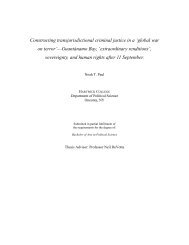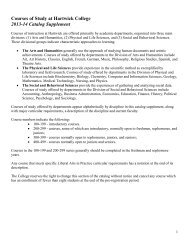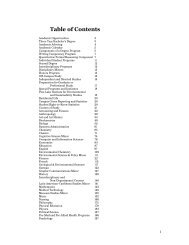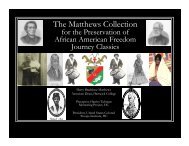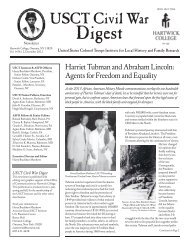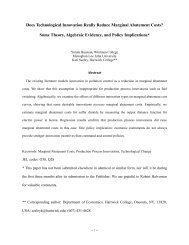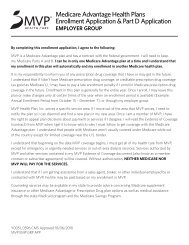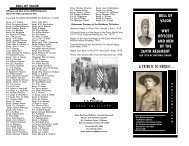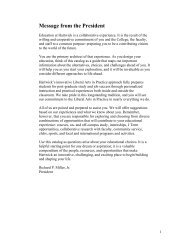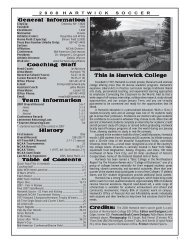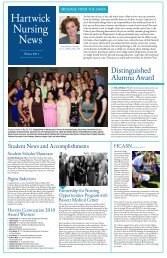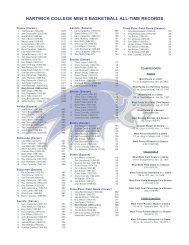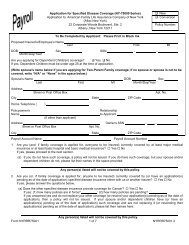Table of Contents - Hartwick College
Table of Contents - Hartwick College
Table of Contents - Hartwick College
Create successful ePaper yourself
Turn your PDF publications into a flip-book with our unique Google optimized e-Paper software.
<strong>of</strong> novelists such as Defoe, Fielding, Sterne, Mary Shelley, Austen, the<br />
Brontës, and Dickens. (MWL)<br />
326 The British Novel II (3 credits) A study <strong>of</strong> the English novel from<br />
the mid-19 th century through its later incarnations in the early decades <strong>of</strong><br />
the 20th century to the present, with particular emphasis on the ways in<br />
which it shaped itself in response to the advent <strong>of</strong> a “modernity” that was<br />
historical, literary, and scientific. Readings will include the novels <strong>of</strong><br />
authors such as Dickens, Eliot, Hardy, Wells, Conrad, Lawrence, Woolf,<br />
and Joyce. (MWL)<br />
330 Old English Literature (4 credits) An exploration <strong>of</strong> the literature,<br />
language, and culture <strong>of</strong> the Old English period (c. 500-1100). An<br />
examination <strong>of</strong> the complex and multi-linguistic culture <strong>of</strong> England in the<br />
Anglo-Saxon period will be coupled with intensive study <strong>of</strong> Old English<br />
prose and poetic works such as “The Life <strong>of</strong> St. Edmund,” the Anglo-<br />
Saxon Chronicles, “The Dream <strong>of</strong> the Rood,” “The Wanderer,” “The<br />
Seafarer,” and selections from Beowulf. Offered alternate years.<br />
331 Chaucer (4 credits) Intensive study <strong>of</strong> the works <strong>of</strong> Chaucer. Special<br />
attention will be paid to gaining fluency in reading Chaucer’s Middle<br />
English (both silently and aloud), cultural context, and critical reception.<br />
Some <strong>of</strong> Chaucer’s shorter works may be studied, but the main<br />
concentration <strong>of</strong> the course will be on his two masterpieces, Canterbury<br />
Tales and Troilus and Criseyde. Offered alternate years. (MWE)<br />
333 Middle English Literature (4 credits) Intensive study <strong>of</strong> the<br />
literature, language, and culture <strong>of</strong> the Middle English period (c. 1100-<br />
1500). The rich variety <strong>of</strong> Middle English literature will be explored<br />
through readings in different genres—romance, lyric, saints’ lives, drama,<br />
epic, dream vision—and by practice in reading different dialects. (MWE)<br />
335 English Renaissance Literature (3 credits) Advanced study <strong>of</strong><br />
the poetry, drama, prose, fiction, and song <strong>of</strong> 16 th century England,<br />
primarily works <strong>of</strong> the late Elizabethan era. With an eye always to the<br />
focal point <strong>of</strong> all Elizabethan circles, the Queen herself, students examine<br />
some notable models for success in court circles, study Elizabethan sonnet<br />
cycles, pastoral romance, revenge tragedy, and lyric comedy, and sample<br />
the literature <strong>of</strong> exploration and colonization. Authors include Hoby,<br />
Wyatt the Elder, the Sidney circle, Marlowe, Spenser, Kyd, Shakespeare,<br />
Elizabeth I, Greene, Raleigh. (MWE)<br />
336 Shakespeare I (4 credits) Advanced study <strong>of</strong> plays from the first<br />
half <strong>of</strong> Shakespeare’s career as a dramatist, with attention to the<br />
development <strong>of</strong> Shakespearean comedy, to the playwright’s achievement<br />
in dramatizing English history in the Richard II-Henry V tetralogy, and to<br />
the interpenetration <strong>of</strong> these genres. The plays will be considered as<br />
scripts for a particular theatre in a particular place and time, as well as<br />
texts <strong>of</strong> enduring critical controversy, cultural interest, and iconic<br />
significance. (MWE)<br />
337 Shakespeare II (4 credits) Advanced study <strong>of</strong> Shakespeare’s later<br />
works, beginning with Hamlet, that is, the major tragedies and romances.<br />
Special attention will be paid to cultural context, critical reception, and<br />
stage history. Offered yearly. (MWE)<br />
340 Empire and Revolution in 17 th Century British Literature<br />
and Culture (3 credits) In this century <strong>of</strong> revolution, reformation, and<br />
imperial expansion, England’s writers participated in its political,<br />
115



